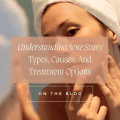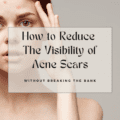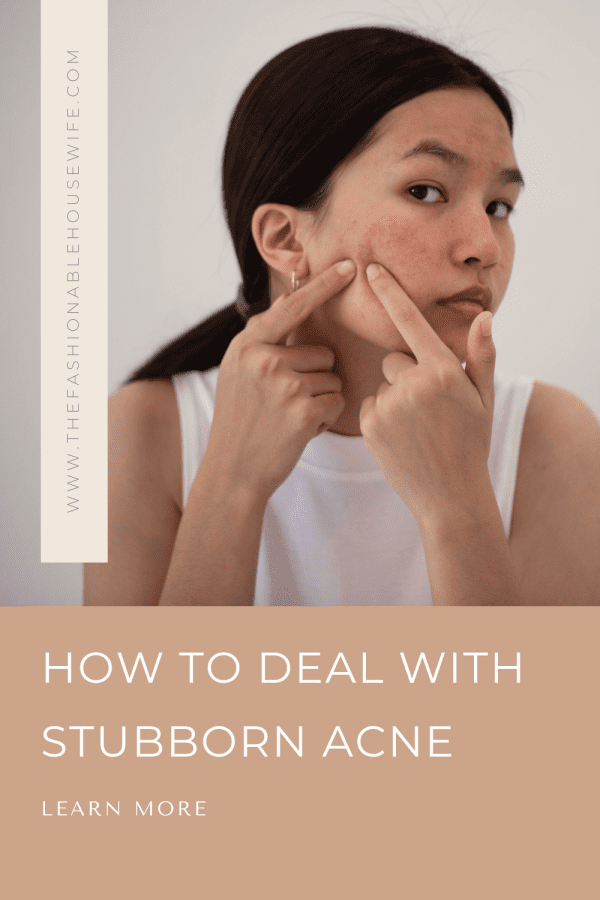
Dealing with stubborn acne involves understanding its causes, exploring various treatment options, and employing effective skincare routines. With dermatology and advanced skincare, individuals have access to a range of specialized treatments that can significantly enhance their approach to managing acne.
Here’s a useful guide to help you manage and reduce stubborn acne effectively – all via doable steps to professional dermatology and advanced skin care. Read on.
What Causes Stubborn Acne?
Acne primarily results from clogged pores, which can be caused by excess oil production, buildup of dead skin cells, and bacterial growth. Identifying your specific triggers is a critical first step in treating acne effectively.
According to experienced dermatology and advanced skin care experts, stubborn acne can be challenging to manage due to various factors. Hormonal fluctuations, particularly of androgens, increase sebum production, making acne more likely during puberty, pregnancy, menstruation, or with conditions like polycystic ovary syndrome (PCOS).
Genetics also play a role, as a family history of acne can make one more prone to persistent cases. Skincare missteps, such as using inappropriate products or over-washing, can exacerbate acne. Diet may influence acne, and high glycemic foods and dairy may potentially worsen the condition. Stress can alter hormone levels and aggravate acne. Additionally, resistance to treatments like antibiotics and the use of heavy or oil-based cosmetics can also trigger acne outbreaks.
According to advanced dermatology experts like Pinnacle Skin, understanding the specific causes and triggers of your acne is crucial for effective treatment. If acne is persistent and difficult to manage, consulting a dermatologist for tailored advice and possibly prescription medication is advisable.
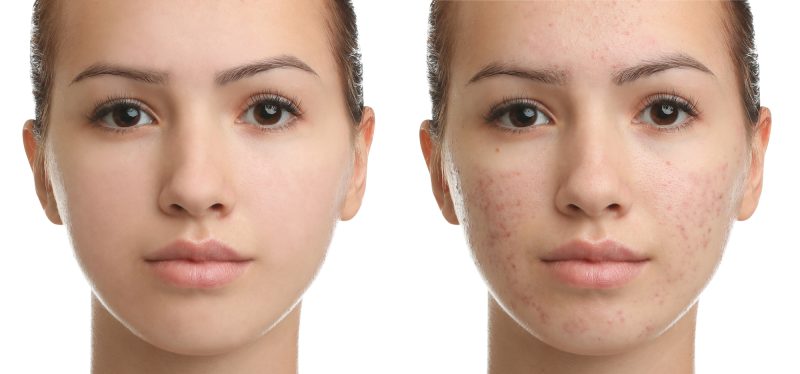
Steps When Dealing With Stubborn Acne
Here’s how you can deal with stubborn acne.
1. Establish a Good Skincare Routine
Use a mild, non-comedogenic cleanser twice a day to remove impurities. Incorporating a gentle exfoliant can help clear dead skin cells that clog pores. However, over-exfoliation can irritate your skin, worsen acne, and other skin conditions, so limit usage to once or twice a week.
Even oily skin needs hydration. Choose oil-free and non-comedogenic moisturizers to keep your skin hydrated without clogging pores.
2. Consider Over-the-Counter Treatments
Considering over-the-counter (OTC) treatments is beneficial for managing mild to moderate acne by selecting the right active ingredient. Benzoyl peroxide combats bacteria and inflammation and should be started at low concentrations to reduce irritation.
Salicylic acid effectively clears pores and treats blackheads and whiteheads, while retinoids like adapalene promote cell turnover and prevent clogged follicles. It’s essential to follow application instructions to avoid irritation, start gradually, and perform a patch test to prevent adverse reactions. Include a non-comedogenic moisturizer in your routine to mitigate dryness from treatments, and use sunscreen to protect against increased UV sensitivity from ingredients like retinoids and benzoyl peroxide.
Consistent application is necessary as results can take weeks, and if no improvement is seen, consulting a dermatologist for alternative treatments is advised. Remember, treatment efficacy can vary widely among individuals.
3. Explore Prescription Medications
For severe acne unresponsive to over-the-counter methods, prescription medications may be required, targeting different acne causes. Topical retinoids like tretinoin and adapalene promote cell turnover and unclog pores while reducing inflammation, often used with topical antibiotics such as clindamycin or erythromycin to control bacteria and enhance effectiveness.
Oral antibiotics, like tetracycline, doxycycline, and minocycline, combat acne-causing bacteria and are used briefly to prevent resistance, usually in combination with topical treatments. Hormonal treatments, including birth control pills and anti-androgen agents like spironolactone, regulate hormones that trigger acne, which is beneficial for women with hormonally influenced acne.
Consulting a dermatologist is crucial for a personalized treatment plan that integrates these options to effectively manage and treat severe acne, tailored to the individual’s specific skin and health needs.
4. Make Dietary Adjustments
Emerging research suggests a significant link between diet and acne. Foods high in glycemic index, such as sugary snacks and refined grains, can cause insulin spikes that may increase sebum production and worsen acne. Dairy products are also suspected to exacerbate acne, potentially due to hormones in milk.
Whole grains help stabilize blood sugar levels, while lean proteins and vegetables provide essential nutrients that regulate hormonal balance and reduce inflammation.
Including foods high in omega-3 fatty acids and antioxidants, such as salmon, flaxseeds, berries, and nuts, can also help combat inflammation and potentially reduce acne breakouts. These dietary adjustments, alongside other treatments, can improve skin health and manage acne more effectively.
5. Manage Stress
Managing stress is crucial for controlling acne flare-ups, as stress increases hormone levels that can lead to heightened oil production in the skin.
Meditation helps calm the mind and reduce cortisol levels, which are linked to oil production, while yoga combines physical poses, breathing exercises, and meditation to reduce stress and promote skin health through improved circulation and detoxification.
Adequate sleep is also essential for maintaining hormonal balance and reducing stress, both of which can exacerbate acne. Regularly incorporating these practices into one’s daily routine can significantly mitigate stress and its effects on acne, improving both skin health and overall well-being.
6. Consult a Dermatologist
Consulting a board certified dermatologist is essential for those dealing with persistent or severe acne, as they offer specialized advice and advanced treatment options not available over the counter. Dermatologists provide personalized treatment plans that promote new skin growth, helping to reduce scars and hyperpigmentation.
Laser therapy is another option, using focused light to diminish inflammation and scars tailored to individual skin sensitivities. For more severe cases, dermatologists can prescribe stronger medications like oral retinoids, which are highly effective against cystic acne by reducing oil gland size and sebum production.
Additionally, they can offer prescription-strength topical treatments with high concentrations of active ingredients. Access to a dermatologist’s expert guidance ensures a comprehensive approach to acne treatment, maximizing the likelihood of improving skin health.
7. Be Patient and Persistent
Acne treatments can take several weeks to show improvements, and finding the right treatment might require some trial and error. Consistency is key, and changes should be made with patience and under professional guidance. Stay updated with advanced dermatology to address your skin care needs.
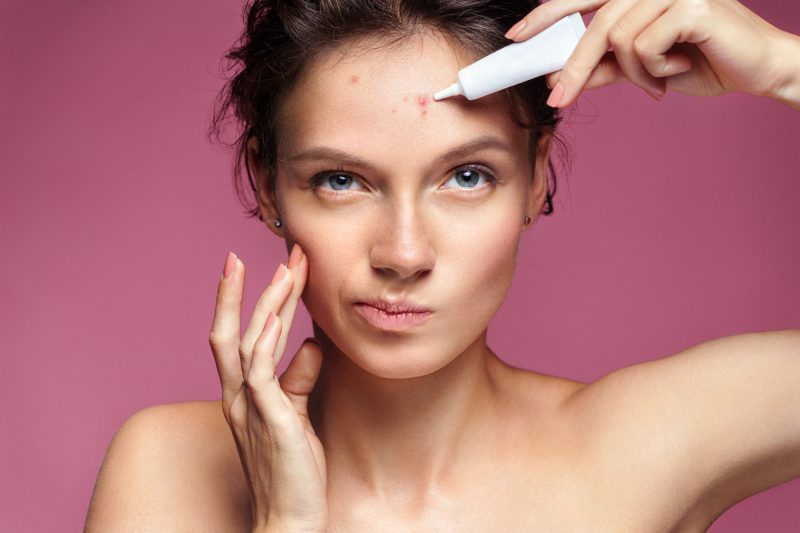
Conclusion
Dealing with stubborn acne requires a multifaceted approach. By understanding the causes, establishing a proper skincare regimen, exploring various advanced dermatology treatment options, and consulting with a dermatologist, you can significantly improve your skin’s appearance. Remember, each skin type is unique, so what works for one person may not work for another. Patience and perseverance are your best allies in battling acne.


